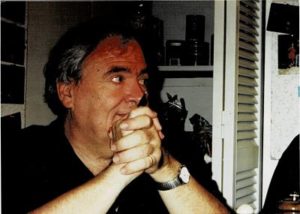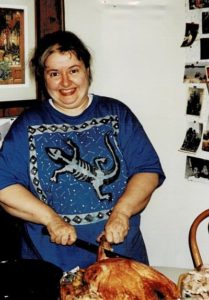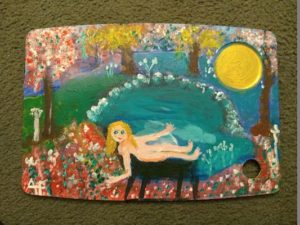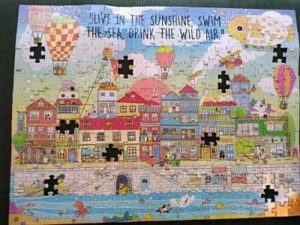I once wrote that the main thing I fear about aging is the death of more and more friends and family. That was eight years ago, and now at 73 I have reached the time of losses. I have lost a brother, a sister, and seven friends. The experience is as profound and hard as I feared. Each death leaves a hole which no one else can fill, in a shape peculiar to that person, like a missing piece in a jigsaw puzzle. We hear about the deaths of old friends whom we have little contact with, and it sends us back to earlier times in our life. But the people who are part of our present life – whom we talked to daily or weekly – whenever we turn a corner we encounter their absence again.

Brother Dickie

Sister Luli
I would like to say I am learning to deal with loss, but I don’t know what that means. The idea that in a year after a death you will have folded up the sorrow and put it in a drawer where you can visit the memories doesn’t ring true.

Grief in a drawer
My sister Luli died three and a half years ago, leaving many writings and cartoons. My friend Arupa died a little over a year ago. She was a writer, painter, and founder of the HOME Van; she had asked me to be her literary executor. I carried home cartons and two file drawers with her writings, along with the remainder of her paintings. I plan to compile her writing about homelessness into a book and sell it to benefit homeless services, then share some of her remaining work on Facebook or on this blog. A writer wants to be read.

Birthday card by Luli

Painting by Arupa
Early in March I finally began reviewing Arupa’s work. Luli’s birthday was March 4, and she haunted the work – when I took a break from Arupa, I would go to Luli’s writing. My friend and my sister had a lot in common (besides their fondness for drawing nudes). Both bore scars from childhood and survived trauma, confusion and pain to become women who were larger than life. They were both writers and visual artists. Luli’s huge, generous heart had a genius for friendship, while Arupa shared her heart and her last twenty years with people who are homeless.
The legacy left by an artist and writer’s death gives us more than memories; we can visit their voice and vision whenever we like. They come back so clearly, with an intimacy and honesty we may only have glimpsed when we were together. But it is a mixed blessing. All that we lost is there before us, right on the page, and we can’t offer comfort, ask questions, share our own stories.
Mourning doesn’t end after a year. As time goes by, grief, at first an acute condition, becomes chronic, flaring up from time to time when we bump into a memory. But I suppose after a few years we become used to the jigsaw gaps, accustomed to grief. Sometimes we deliberately visit the memories; sometimes we run from them. But after someone dies, all we have are memories. If we flee the memories because they carry sorrow, we lose a loved one twice.

Missing pieces
About Arupa: The Fairy Queen
About Luli: Sisters Two

Liz, your writing is so lovely. It makes me laugh and cry at the same time … and often makes me a bit wiser! Please e-mail me at davruhl@gmail.com. It’d be nice to vea bit more in touch.
Truth Beautifully Said.
So sorry for your losses. I had a similar set of losses two years ago, and am just now feeling a chance at recovery – enjoying their memories without losing it. When multiple people pass, it seems to make grief that much harder. It will get better! Take care.
Aw